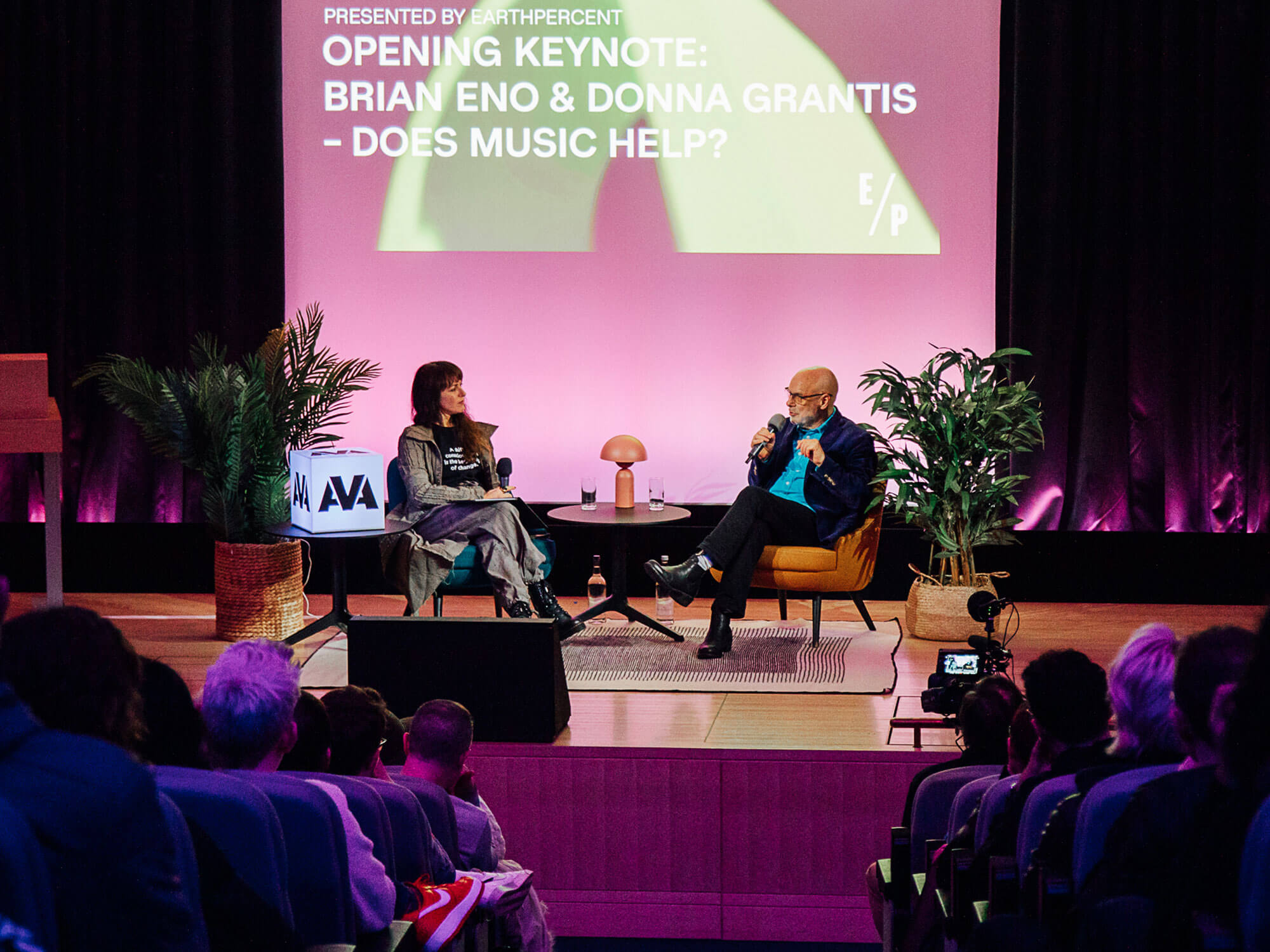Brian Eno: “‘Why do we like music?’ is as interesting as ‘How did the universe start?’”
At AVA London last week, Brian Eno discussed the psychology behind our love of music, how artists operate and whether music can help tackle climate change.

Credit: AVA Festival
AVA London Conference: Brian Eno has suggested that discovering why humans like music is as “profound” and “huge” a question as discovering how the universe started.
The statement was made during the opening keynote of AVA London Conference in the British Library in London last Thursday, in which the ambient pioneer aimed to answer the question “Does music help?” alongside former Prince guitarist Donna Grantis.
This keynote initially saw Eno and Grantis attempt to decipher whether music could be a positive force in the fight against climate change, but soon veered into an eye-opening discussion about the psychology behind how artists make music, and why humans like it.
“I think this question of why do we like music is a really profound question. It’s as interesting and as deep as ‘How did the universe start?’ It’s a huge question,” he said.
Brian Eno also talked about the unique relationship humans have with music, contrasting it with the responses of other animals to sound. He noted, “We can look at other animals and see what they do in response to sound.
So some birds know how to keep a beat. Cockatoos are quite good at it. They’ll dance.” However, Eno highlighted a limitation in their musical understanding, stating, “Other creatures can learn melodies, like some of the higher primates can learn melodies. But if you transpose them into a different key, they don’t see the relationship.”
Eno emphasised that humans integrate various sensitivities to music, making it a uniquely fascinating aspect of human experience. He added, “I mean, if I sang a song correctly in one key, and then in another, we’d know it was the same song. We’re the only creatures it seems who integrate all of these different sensitivities.”
The Music For Airports creator also highlighted research conducted at Edinburgh University and an unnamed German university on human reactions to music.
Discussing the findings, Eno noted that humans react most to music with unexpected, dissonant notes or sounds, citing Lou Reed as one example: “The only thing that was common is the most extraordinary, weird little thing, perhaps in music, which is called a [pochatorey – spelling unknown]” He explained, “It’s when you start a melody on the wrong note, and then you correct to the right note.” Continuing this theory, he went on to say that listeners like to be “taken on an adventure” in their music, and that “We like these surprises”.
Keep an eye on AVA Festival for details about AVA’s upcoming festival in Belfast, and head to MusicTech for more news about Brian Eno.